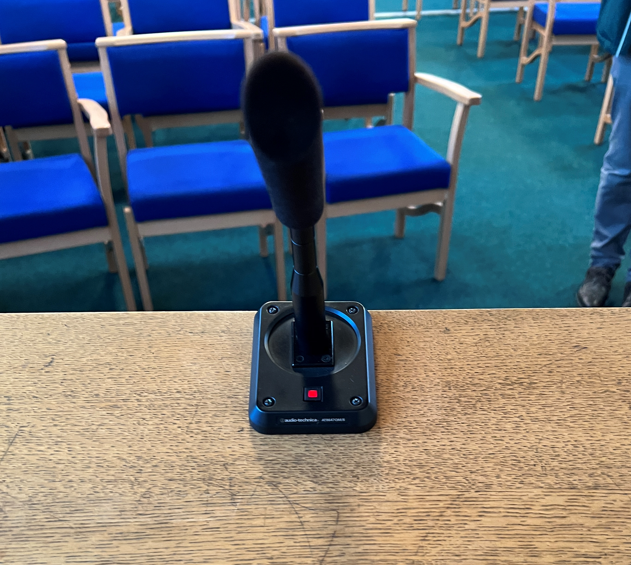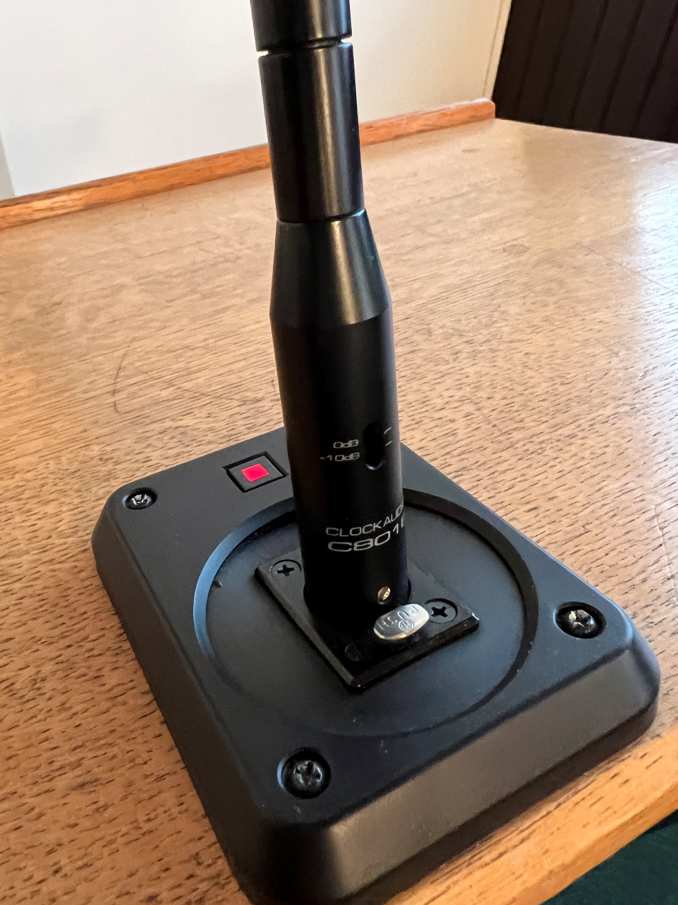Do you need to spend a fortune on a microphone?
 By Paul Dougherty, managing director, Blaydon Communications Ltd.
By Paul Dougherty, managing director, Blaydon Communications Ltd.
Don’t worry, this article isn’t going to get too in depth from a technical point of view, but it does steer close to it! The argument of whether or not you need to spend a fortune on a microphone is a difficult one to answer. As with all things in life, you need to buy the best you can afford, and this will yield the best outcome for you and your pocket in the long run. Saying that, sometimes it is worth saving a little longer and spending a little more than you’d planned for too.
Did you know that all microphones aren’t equal? Many people say: "Well a microphone’s a microphone, isn’t it?" - but they couldn’t be more wrong. When choosing a microphone there’s a lot to consider, and price is probably one of the lesser things to think about in the early stages. There is no doubt that you will find a microphone for any price you set, but if it doesn’t work for you, you may as well drop your hard-earned cash down the drain.
When starting your search for a suitable microphone, you will be much better speaking to an audio expert who can tell you what you should be looking for based on your specific application. An audio expert will have good knowledge of what all those weird graphs, confusing spec sheets, and multitude of random numbers mean, when searching for a microphone. Whilst it is difficult to put your trust in someone, and hope they don’t just take you for every penny you have for the sake of it, you will need to put your faith in someone and judge them on the outcome. There are organisations, such as the Institute of Sound, Communications & Visual Engineers, that have a list of members that adhere to a code of conduct and can be trusted. If it all goes wrong, and the ‘expert’ fails you, then I’m sure the ISCVE would be happy to help!
 It can be quite daunting to pick up the phone and speak to an expert about anything, but most of us are human, and are keen to help, well that is definitely true for our staff! In advance of your call to the selected expert, it could be a wise move to be prepared for the type of questions that may be thrown at you. The following paragraphs cover some of the things we would ask, and also give a brief explanation of why we need to know.
It can be quite daunting to pick up the phone and speak to an expert about anything, but most of us are human, and are keen to help, well that is definitely true for our staff! In advance of your call to the selected expert, it could be a wise move to be prepared for the type of questions that may be thrown at you. The following paragraphs cover some of the things we would ask, and also give a brief explanation of why we need to know.
The first consideration, and therefore first question, would be to determine what you actually want the microphone for? Is it for picking up speech, reproducing vocals, or maybe to pick up an instrument? All of these will have an impact on microphone selection. For example, a lectern gooseneck mic would be no good whatsoever for an aerobic instructor, nor would a ceiling microphone be of any use in a cavernous cathedral, so think about what you really want the microphone for and what you’re expecting to get from it.
You may be asked about how many people want to use the microphone. If it’s only one person, then a wireless microphone system may be the answer. This would allow freedom of movement for the user and there’d be no cables to install. If there are likely to be more than one person, maybe at a lectern, then something like a flexible gooseneck would be more suitable. This information will help when working out the next steps, such as how to physically mount a microphone based on the intended use.
The audio expert will also be keen to know about some of the acoustics and sound source position too. Don’t worry, you’ll not need a degree in acoustics to answer these questions, it would be a basic request of how noisy the space is, or how much echo there is. This information, combined with an understanding of how close the sound source (human or instrument) will be to the microphone, will help to determine the required microphone sensitivity. Sensitivity is important as microphones that are too sensitive can give feedback issues and microphones that aren’t sensitive enough simply appear not to work.
 There was a brief mention of feedback there, which is the howling sound a sound system makes when a microphone is too close to a speaker, and there is another microphone characteristic that can help with this. We’re talking about directionality, so it’s always worth considering the direction that you want the microphone pick up audio from. There’s a vast range available, from the all-round pick-up type, through to the latest digital microphones that can really home in on a specific area.
There was a brief mention of feedback there, which is the howling sound a sound system makes when a microphone is too close to a speaker, and there is another microphone characteristic that can help with this. We’re talking about directionality, so it’s always worth considering the direction that you want the microphone pick up audio from. There’s a vast range available, from the all-round pick-up type, through to the latest digital microphones that can really home in on a specific area.
There are several other considerations, such as cable length to the amplifier, microphone head type, power requirements, frequency response, and tonal quality, but we would need to delve into a technical abyss to explain this in a written document. I’m sure the audio expert you speak with would be more than happy to grab a coffee and keep you on the phone for an hour to talk through all these, but they’ll also be aware that not everyone is experienced in this type of thing, and not everyone has an hour to spend talking about microphones!
To sum up, you really need to speak with an expert about microphone selection, have a reasonable budget in mind, and take the advice that is given to you whenever possible. To answer the question from the start of the article, we do believe that you should always spend a decent amount of money on a microphone, and if you don’t have a decent budget, then save up a little bit more before purchasing.
Live by the motto of ‘Buy Once, Cry Once’ and you’ll not go wrong; it may hurt the pocket a little more at the start, but it really is worth it. At the end of the day, the microphone is the first part of your audio broadcast, and if that’s no good, there’s no amount of tech that can correct that.
For further information visit www.blaydoncomms.co.uk













